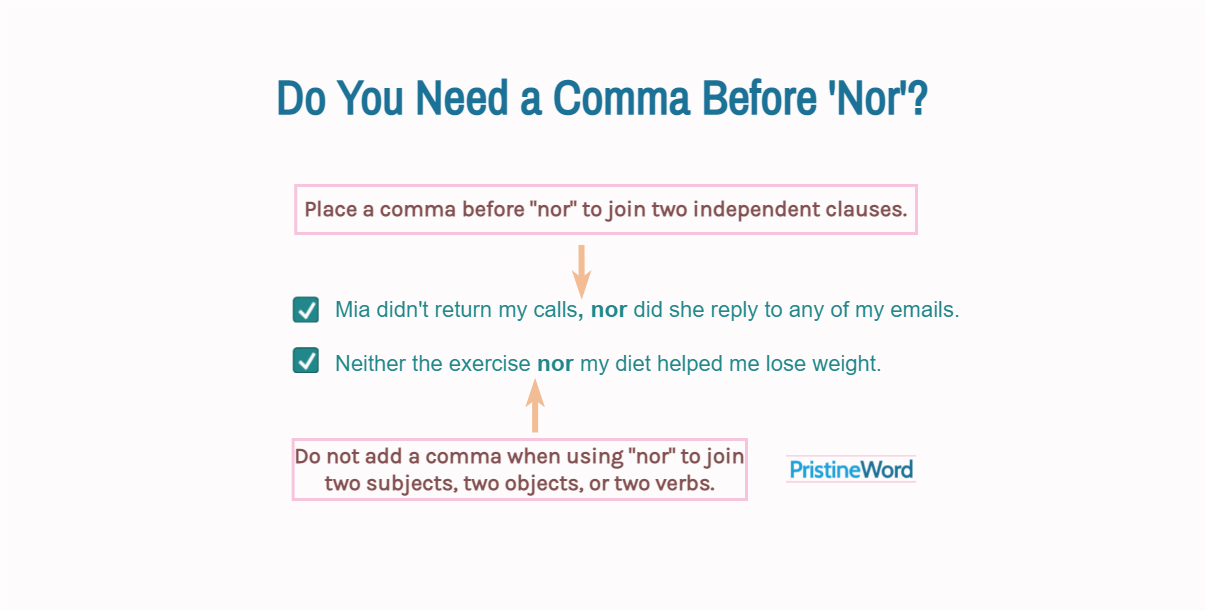Place a comma before "nor" to join two independent clauses. Do not use it to join two subjects, two objects, or two verbs.
Place a comma before "nor" to join two independent clauses.
Mia didn't return my calls, nor did she reply to any of my emails.
Mia didn't return my calls nor did she reply to any of my emails.
Do not use a comma when using "nor" to join two subjects, two objects, or two verbs.
Neither exercise nor my diet helped me lose weight.
1. When to Add a Comma Before 'Nor'
By pairing two negative ideas, the conjunction "nor" is frequently used to introduce more negativity to a previous negative clause or sentence.
I refuse to kiss to people I don't know, nor will I hug them.
Note that we normally use inversion in these sentences; that is, the subject and first auxiliary are inverted ("nor will I" in the example above).
Place a comma before a coordinating conjunction, such as "nor", to introduce an independent clause (a group of words with a subject and a verb that can stand alone).
I don't expect poor job performance in this company, nor do I expect insubordination.
I don't expect poor job performance in this company nor do I expect insubordination.
Do not use a comma, however, when using "nor" to join two subjects, two verbs, or two objects.
Neither Isabella nor Claire came to the party.
Olivia said she would contact me, but she neither phoned nor sent an email.
2. More Examples
2.1 Using 'Nor' to Introduce an Independent Clause (Comma)
- I don't expect employees to act in a way that is not beneficial to the company, nor do I expect indiscipline in my office.
- James couldn't understand what they were saying, nor did he need to get a sense of it.
- The local government never wanted the new shopping mall to be built, nor did the residents like the project.
- I didn't think that it would rain in mid-August, nor did the weather forecast predicted heavy rain for most of the day.
- Rebecca was not obsessed with her weight, nor did she need to control it.
2.2 Using 'Nor' to Join Two Subjects, Objects, or Verbs (No comma)
- Mary doesn't like to watch TV shows nor listen to the radio.
- Mark doesn't have the time nor the money to visit Thailand this summer.
- He doesn't have the goal nor the ambition of living a memorable life.
- Although neither Spain nor England have reached the semi-finals, they played well during the tournament.
- Neither Alex nor Richard went to New York since they had to deal with a difficult customer in San Francisco.
3. Conclusion
Follow these simple and quick guidelines to punctuate the coordinating conjunction "nor" in a sentence:
- Place a comma before "nor" to join two independent clauses.
- Do not use a comma when joining two subjects, two verbs, or two objects with the coordinating conjunction "nor".

